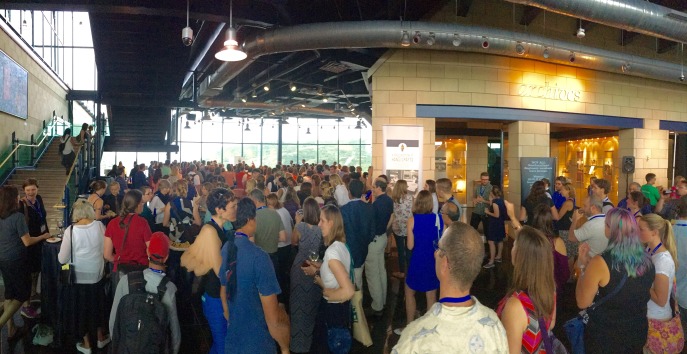Por Sebastian Muñoz
Es bien sabido que la biodiversidad del planeta afronta un momento crítico como consecuencia de las acciones humana. Los ecosistemas marinos no son ajenos a esta realidad, ya que muchas de sus especies enfrentan un futuro incierto en términos de conservación. En pocas palabras nos enfrentamos a un “océano de problemas” para la vida marina, causaod por el calentamiento global, especies invasivas, contaminación, sobrepesca, etc. A primera vista el panorama puede ser intimidante e incluso desalentador, entonces ¿Cómo navegar en este tempestuoso océano?, efectivamente no se trata de una situación fácil de resolver, pero es al mismo tiempo un escenario de oportunidades para aquellos que se proponen aportar propuestas de mitagción a través de la investigación científica.
Bajo este contexto, el Congreso Internacional de la Biología de la Conservación (ICCB) acogió un gran número de invetigaciones del mayor nivel científico que sugieren que la pérdida de biodiversidad marina debe ser manejada desde las escalas ecológicas más grandes, incluyendo el ámbito local hasta el global. Así mismo, fueron presentados múltiples ejemplos en donde existe una integración real de las actividades científicas en las decisiones gubernamentales. Esto es necesario para una protección más efectiva de la biodiversidad, ya que se requiere que los tomadores de decisiones actúen de manera congruente con lo sugerido por los científicos. Del mismo modo cabe destacar se hizo mención a varias estrategias investigativas en las cuales fue incluida la acción comunitaria. Finalmente, el cambio de comportamiento individual de la población es esencial, pues de las decisiones cotidianas depende en gran medida la protección de la vida marina a largo plazo.

Una de las presentaciones de ciencias marinas compartidas en la reunión del ICCB 2017 en Cartagena, Colombia. (Imagen: Sebastian Muñoz)
Muchas de las investigaciones presentadas referentes a temas marinos fueron realizadas en ecosistemas representados en el país anfitrión del ICCB. Colombia posee una de las diversidades más ricas del mundo, pero al mismo tiempo cuenta con condiciones socioeconómicas, educativas, políticas y de conflicto armado interno que conllevan a una alta dificultad para la protección de sus mares. Si se suman además aspectos como el calentamiento global, se convierte en un claro ejemplo del “océano de problemas” referido previamente. No obstante los diversos estudios presentados en el congreso son sin duda alguna un paso fundamental en la construcción de lineamientos que permitirán enfocar los esfuerzos de conservación en el país e integrar de mejor manera los actores participantes en la conservación. Esto brindará nuevas perspectivas y esperanzas para proteger los invaluables ecosistemas marinos colombianos y los organismos que allí habitan.

Una presentación sobre la tortuga carey en peligro crítico, que desembarca en la costa de Colombia para depositar sus huevos (Imagen: Sebastian Muñoz)
Con este congreso se recalca la importancia de continuar con las investigaciones y estudios de los ambientes marinos de Colombia y el mundo, pues ante tantos actores que afectan negativamente a los organismos de los océanos y mares, hay que tener respuestas viables y efectivas que aseguren su conservación y la protección de los ecosistemas en que habitan. ¡Este es el momento de aportar más soluciones y presentarlas en el Congreso Internacional de la Conservación Marina 2018, que tendrá lugar en Kuching, Malasia!

Sebastián Eduardo Muñoz Duque nació en Medellín (Colombia). Actualmente está terminando sus estudios de licenciatura en Biología en la Universidad de Antioquia, Colombia. Ha sido parte del grupo de investigación en Ictiología (GIUA) en su universidad durante los últimos tres años. Sebastián también ha participado en diferentes proyectos de ecología de peces de agua dulce con la Universidad Nacional de Colombia y ha trabajado para diferentes empresas interesadas en la gestión de peces de agua dulce. En el último semestre, participó en varios cursos sobre ecología de agua dulce en la Universidad de Burdeos, Francia.


